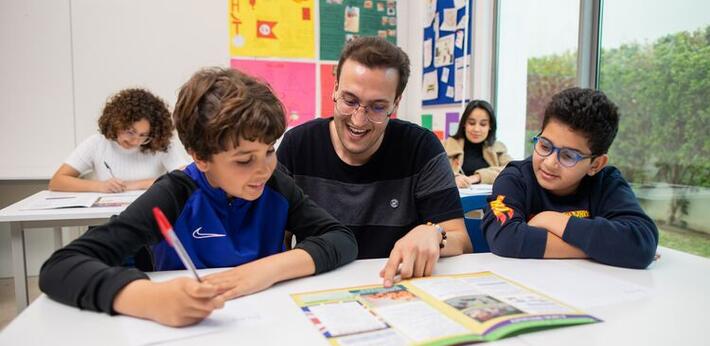You are here
Home ›21/04/2016
Medium and Long-Term Plan for Chinese Football Development points to increased demand for education in sports-related fields
Summary:
Covering a 35-year span of 2016-2050, a 14-page Medium and Long-Term Plan of Chinese Football Development was recently issued by a joint committee of the State General Administration of Sports, the Chinese Football Association, the Ministry of Education and the National Development and Reform Commission.
Aiming at transforming the country into a “first-class football superpower” able to challenge the world’s top teams by 2050, the Plan sets short, medium and long-term targets for Chinese football (soccer) over the next 35 years. Key targets include 20,000 soccer academies/training centres, 70,000 football pitches, and more than 30 million primary and secondary school students encouraged to play regularly by 2020. The plan clarifies the soccer pitch construction for per capita allotment, allows favourable financial and taxation policies to support football clubs, and calls for soccer culture cultivation nationwide.
- By 2020, more than 30 million primary and secondary school age students will be encouraged to play football regularly. 20,000 soccer academies/training centres and 70,000 pitches will be in place, with a target of 0.5 to 0.7 pitches per 10,000 people.
- By 2030, one pitch will be available to every 10,000 people. The Chinese men's national team will become one of the best in Asia, and the female team will be ranked as one of the leading teams in the world (As of 2016, China's women are currently ranked the 12th best team in the world by soccer's governing body FIFA, with the men's team languishing in 81st place).
- By 2050, the plan envisions a complete turnaround in fortunes, with China transformed into a "first-class football superpower," while contributing greatly to the game's international growth and "realising the 'soccer dream' for the entire nation".
In education field, several points are worthy to note:
- Football will be included in physical education teaching content, to reach a substantial increase in engaging youth in football activities. A number of pilot schools and counties will be identified, with youth football training on campus, while HEIs meeting certain conditions should have at least one football pitch.
- Guidelines will be developed for school football teaching and training, and free online school football courses will be developed. 50,000 full-time and part-time football teachers and trainers will be trained, in order to improve the football teaching level of PE teachers.
- School football coaches and referees will be trained, while professional skills of football coaches and referees will be strengthened. Up to 10,000 professional coaches and community soccer instructors will be trained, the number of registered referees will double, and 50 cities will set up amateur soccer matches by 2020.
- Education and training organisations including HEIs, research institutes, vocational colleges, professional skills training institutes and continuing education institutes will be encouraged to train professionals with skills to meet market demands in the football industry. This includes a focus on management and capital operation, marketing, intermediary services, cultural and creative professionals, and relevant research and development. International cooperation and professional exchanges will be strengthened.
- The proportion of students with high-level football skills among students studying sports-related subjects at HEIs will be increased. Secondary and tertiary institutions, including secondary vocational institutions, will be encouraged to set up soccer academies.
- Popularise inter-school football tournaments at the primary, lower secondary, upper secondary and HE levels
- Professionals in all areas of the football industry will be encouraged to study and train abroad
- Professional skills training for school football teachers, community football coaches and instructors will be introduced into teacher training, national fitness and employment training
Outside of the educational field, other sectors whose development is encouraged in the plan include internet broadcasting, entertainment such as movies or mobile app development, as well as beneficial fiscal and financial regulations for the development of football itself.
Analysis by Kevin Prest, Senior Analyst Analysis and Liu Xiaoxiao, Education Services Manager:
China's football development plans require two types of skills: those directly related to football and football training, and professional skills to develop football as an industry. The first of these fields creates opportunities for training in the FE sector and local delivery in China. This includes skills training for coaches and referees as well as training for PE teachers in primary and secondary schools.
Meanwhile, the demand for professional schools could create more opportunities for the UK's HE sector, as the UK is well regarded in fields such as sports management and sports science. The new plan recognises that these skills will be important for the development of a sustainable football industry, which will be essential for China's long-term football ambitions. Demand from Chinese students in these subject areas is therefore likely to increase over the next few years.
Sources:
1. The Plan (in Chinese): http://www.moe.edu.cn/jyb_xxgk/moe_1777/moe_1779/201604/t20160411_237461.html#rd?sukey=fa67fe3435f5c4be5386dcbb7a33b32f34f47aa52c742874a47b895ec291914dc52359d7662a81d7bbb8ea703e03fdc4
2. http://news.xinhuanet.com/english/2016-04/12/c_135271553.htm
3. http://www.bbc.com/news/world-asia-china-36015657
4. http://edition.cnn.com/2016/04/11/football/china-football-superpower/






